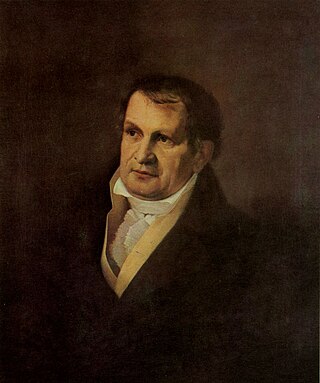
Johann Ludwig Tieck was a German poet, fiction writer, translator, and critic. He was one of the founding fathers of the Romantic movement in the late 18th and early 19th centuries.
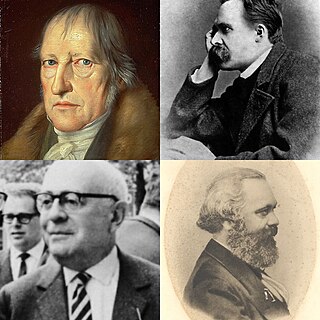
German philosophy, meaning philosophy in the German language or philosophy by German people, in its diversity, is fundamental for both the analytic and continental traditions. It covers figures such as Gottfried Wilhelm Leibniz, Immanuel Kant, Georg Wilhelm Friedrich Hegel, Karl Marx, Friedrich Nietzsche, Martin Heidegger, Ludwig Wittgenstein, the Vienna Circle, and the Frankfurt School, who now count among the most famous and studied philosophers of all time. They are central to major philosophical movements such as rationalism, German idealism, Romanticism, dialectical materialism, existentialism, phenomenology, hermeneutics, logical positivism, and critical theory. The Danish philosopher Søren Kierkegaard is often also included in surveys of German philosophy due to his extensive engagement with German thinkers.

German Romanticism was the dominant intellectual movement of German-speaking countries in the late 18th and early 19th centuries, influencing philosophy, aesthetics, literature, and criticism. Compared to English Romanticism, the German variety developed relatively early, and, in the opening years, coincided with Weimar Classicism (1772–1805).
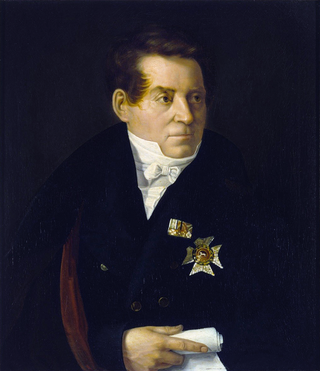
August WilhelmSchlegel, usually cited as August Schlegel, was a German Indologist, poet, translator and critic, and with his brother Friedrich Schlegel the leading influence within Jena Romanticism. His translations of Shakespeare turned the English dramatist's works into German classics. Schlegel was also the professor of Sanskrit in Continental Europe and produced a translation of the Bhagavad Gita.

Karl Wilhelm FriedrichSchlegel was a German poet, literary critic, philosopher, philologist, and Indologist. With his older brother, August Wilhelm Schlegel, he was one of the main figures of Jena Romanticism.

Georg Philipp Friedrich Freiherr von Hardenberg, pen name Novalis, was a German aristocrat and polymath, who was a poet, novelist, philosopher and mystic. He is regarded as an influential figure of Jena Romanticism.
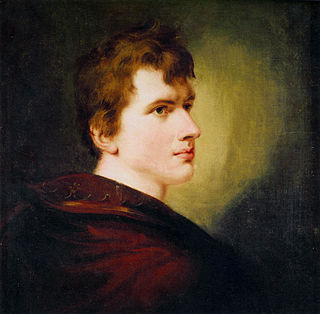
Carl Joachim Friedrich Ludwig von Arnim, better known as Achim von Arnim, was a German poet, novelist, and together with Clemens Brentano and Joseph von Eichendorff, a leading figure of German Romanticism.
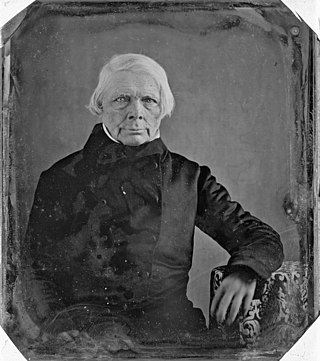
Naturphilosophie is a term used in English-language philosophy to identify a current in the philosophical tradition of German idealism, as applied to the study of nature in the earlier 19th century. German speakers use the clearer term Romantische Naturphilosophie, the philosophy of nature developed at the time of the founding of German Romanticism. It is particularly associated with the philosophical work of Friedrich Wilhelm Joseph Schelling and Georg Wilhelm Friedrich Hegel—though it has some clear precursors also. More particularly it is identified with some of the initial works of Schelling during the period 1797–9, in reaction to the views of Fichte, and subsequent developments from Schelling's position. Always controversial, some of Schelling's ideas in this direction are still considered of philosophical interest, even if the subsequent development of experimental natural science had a destructive impact on the credibility of the theories of his followers in Naturphilosophie.

Wilhelm Heinrich Wackenroder was a German jurist and writer. With Ludwig Tieck and the Schlegel brothers, he co-founded German Romanticism.

August Ferdinand Bernhardi was a German linguist and writer.

Dorothea Friederike von Schlegel was a German novelist and translator.

Christian Friedrich Tieck, often known only as Friedrich Tieck, was a German sculptor and a occasional artist in oils. His work was primarily figurative and includes both public statuary and private commissions for portrait busts.
Roger Cole Paulin is a scholar of German literature and culture. He was the Schröder Professor of German at the University of Cambridge from 1989 until his retirement in 2005.
Pauline Gotter was the second wife of Friedrich Wilhelm Joseph Schelling and a friend of Louise Seidler and Sylvie von Cigars.

A Musen-Almanach was a kind of literary annual, popular in Germany from 1770 into the mid-19th century. They were modelled on the Almanach des Muses published in Paris from 1765.
Jena Romanticism is the first phase of Romanticism in German literature represented by the work of a group centred in Jena from about 1798 to 1804. The movement is considered to have contributed to the development of German idealism in late modern philosophy.

Sophie Tieck, later known as Sophie Bernhardi or Sophie von Knorring, was a German Romantic writer and poet. Her role as a writer of the Romantic period was overshadowed by her brother Ludwig and her first husband, August Ferdinand Bernhardi. She was only really appreciated as an important writer when her letters were published in the 1960s.
August Ludwig Hülsen, also known by the pseudonym Hegekern, was a German philosopher, writer and pedagogue of early German Romanticism. His thought played a role in the development of German idealism.

Johann Diederich Gries was a German poet and socialite during the Romantic period. His extensive list of friends and acquaintances included Goethe and Schiller. Viewed through the prism of intervening years, his most enduring contribution is as a translator.
The philosophical ideas and thoughts of Edmund Burke, Thomas Carlyle, Johann Gottlieb Fichte, Friedrich Wilhelm Joseph Schelling, Søren Kierkegaard, Arthur Schopenhauer and Richard Wagner have been frequently described as Romantic.














